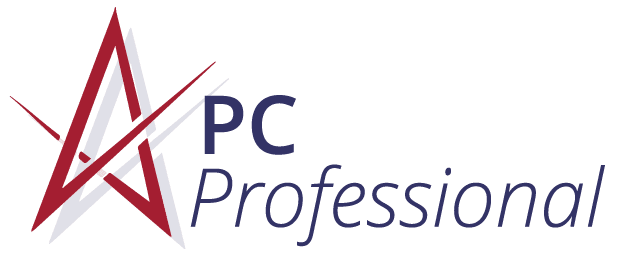October 1st kicks off Cybersecurity Awareness Month, a time when organizations nationwide review policies and promote safer online habits. But once November arrives, many slip back into old routines. For Bay Area businesses, cybersecurity can’t be a once-a-year initiative, it’s a year-round responsibility.
If your business relies on technology (and most do), then ongoing cybersecurity is essential. Whether you’re a small retail shop in Oakland, a non-profit in San Jose, or a growing startup in San Francisco, staying secure requires continuous attention. The good news? You don’t have to do it alone; a managed cybersecurity provider or managed IT services team in the Bay Area can handle the heavy lifting.
Still unsure about taking a more proactive approach? Here are some reasons your cybersecurity efforts shouldn’t stop when Cybersecurity Awareness Month ends.
Free Download: Cybersecurity Checklist
Cybersecurity Awareness Month is over—but your work isn’t. Get on track with our Year-Round Cybersecurity Checklist!
- Built for SF Bay Area businesses
- Covers managed IT, cloud, and cybersecurity fundamentals
- Actionable, non-technical, and ready to use!
Cyber Threats in the Bay Area Are Increasing Every Day
In today’s technology-centered world, putting cybersecurity on the backburner won’t do you any good. With constantly evolving technology and cybersecurity threats, your organization must stay ahead of the curve.
Unfortunately for us businesses in the Bay Area, we’re one of the most targeted regions in the country for cyberattacks. Our high concentration of tech companies, biotech labs, financial firms, startups, and non-profits that store sensitive donor data, make us a target. Attackers see enormous value in infiltrating our local networks.
Here are some common threats to be aware of:
- Phishing attacks targeting remote and hybrid workers
- Ransomware affecting small businesses and non-profits with outdated systems
- Credential stuffing on accounts without multi-factor authentication
Compliance Requirements Don’t End in October
California businesses are subject to some of the strictest privacy regulations in the country, including the California Consumer Privacy Act (CCPA) and the California Privacy Rights Act (CPRA). Non-profits must also take extra caution to protect any donor data and sensitive payment information.
Sadly, compliance is not just a project you “complete” and set aside, it’s a continuous process. Of course, this can be a hassle for your company to deal with, especially when you want to put all your time and effort into your business’ mission. Luckily, as mentioned previously, a managed cybersecurity team can do it all for you from risk assessments to recovery.
Cloud Security Requires Ongoing Oversight
Cloud integration is getting increasingly common, where over 90% of organizations use cloud services. As such, it is important you know that cloud security is a shared responsibility. Keeping secure does not stop after the initial porting of information, in fact that’s where problems can start. Even simple configuration mistakes like using a public bucket, leaving unused access keys, and over-permissioned accounts can create massive vulnerabilities.
A managed cloud service provider ensures your environment stays secure by:
- Monitoring misconfigurations
- Enforcing identity and access controls
- Encrypting sensitive data
- Managing backups and redundancy
- Maintaining compliance across cloud platforms
Small Businesses and Non-profits Need Consistent IT Support
Without a dedicated IT team, many Bay Area SMBs and non-profits are at risk of facing a cyberattack. Human errors, outdated systems, and unpatched software amplify your vulnerabilities.
By partnering with a managed IT services provider in the SF Bay Area, you can tackle all these problems and more, before they start. Thus, saving you valuable resources and putting you ahead of the cybersecurity curve.
Remember: A Year-Round Cybersecurity Strategy Protects Your Organization
Cybersecurity Awareness Month is an excellent reminder to review policies and train employees, but the real work happens in the other 11 months of the year.
To stay protected, Bay Area businesses and non-profits should:
- Train staff quarterly
- Enforce multi-factor authentication
- Audit access privileges
- Update all devices and applications
- Run regular phishing simulations
- Review backup and disaster recovery strategies (or create them)
- Schedule annual cybersecurity assessments
If you’re overwhelmed, or you don’t know what this means, it’s time to partner with a trusted IT service provider or managed cybersecurity expert who can maintain the security you and your stakeholders expect.

Founder & CEO of PC Professional
Founder and CEO of PC Professional, leading the Bay Area IT firm for over 44 years with deep expertise in consulting, security, and hardware.
About Dan Sanguinetti
Dan Sanguinetti is the founder and CEO of PC Professional, a Bay Area IT services firm that’s been in business since 1981. Leading the company for over 44 years, Dan’s expertise spans IT consulting, cybersecurity, computer hardware, and more. As a hands-on leader, Dan has successfully guided PC Professional to support hundreds of local businesses and nonprofits in the San Francisco Bay Area by staying adaptive and client focused.

